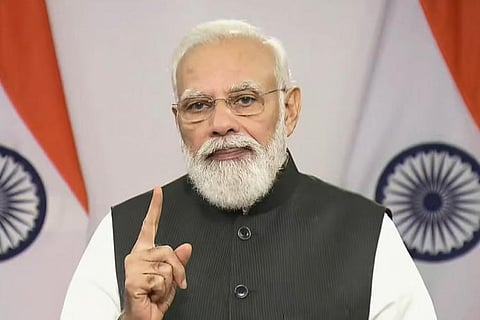

The Indian Union government has invoked its emergency powers to direct social media platforms YouTube and Twitter to remove links to the BBC documentary that revisited Prime Minister Narendra Modi's role in the 2002 Gujarat riots. The Union government exercised its emergency powers under Rule 16 of Information Technology (Intermediary Guidelines and Digital Media Ethics Code) Rules, 2021, which have been challenged by news organisations, digital rights activists and social media platforms for enabling censorship. The Union government's latest move prompted a heated debate since it is the first time the IT rules were invoked to target a major international broadcaster. The Union government had in the past asked YouTube to take down accounts for spreading disinformation.
Kanchan Gupta, senior advisor at the Ministry of Information and Broadcasting, announced on Twitter that multiple ministries had examined the documentary and found it to be “casting aspersions on the authority and credibility” of the Supreme Court, creating divisions among Indian communities and making unsubstantiated allegations. "The directions to block content from BBCWorld's vicious propaganda were issued by the Secretary, I&B, on Friday using the emergency powers under the IT Rules, 2021. Both YouTube and Twitter have complied with the directions of the Governments in India," Kanchan Gupta posted on Twitter.
The directions to block content from @BBCWorld vicious propaganda were issued by Secretary, I&B, on Friday using the emergency powers under the IT Rules, 2021.
— Kanchan Gupta (@KanchanGupta) January 21, 2023
Both @YouTube and @Twitter have complied with the directions.
Governments in India.
n3
Fifty tweets taken down for containing the documentary’s YouTube link included those by Trinamool Congress Member of Parliament Derek O’Brien, Supreme Court advocate Prashant Bhushan and American actor and political activist John Cusack. The list of tweets that the Indian government issued orders against has been published by Lumen, the third-party database where Twitter uploads its content removal requests.
Rule 16 of the IT rules, lays down the government's power of “blocking of information in case of emergency.” The removal of the content can take place without giving the publishers the opportunity to make their case. The action can be initiated if the identified content falls within the criteria referred to in sub-section (1) of Section 69A of the Information Technology Act on blocking public access to any information through a “computer resource.”
Apar Gupta, Executive Director of the Internet Freedom Foundation, told TNM that there are grounds to challenge the Union government's reasons to invoke emergency powers to take down links showing it. “The copy of the directions given to YouTube and Twitter is not available and hence the legal order is not available. The little information which has come from the (union) government which has called the documentary 'propaganda' and 'reflecting a colonial mindset', by itself, shows that the reasons they have cited may not be grounds for censorship,” he said.
“None of the accounts that had their tweets taken down were provided with a legal reason. Though they are not the authors of the documentary, their speech and freedom have been restricted," Apar added. The Internet Freedom Foundation (IFF) is a New Delhi-based digital rights organisation that seeks to ensure that Indian citizens can use the internet with the liberties guaranteed by the Constitution. IFF, in a tweet, called upon the “authorised officer” to comply with this provision and also asked the review committee to make its findings public.
In any event, Rule 16(3) requires the Authorised Officer to place the ban request before a Review Committee, to decide whether to continue to ban.
— Internet Freedom Foundation (IFF) (@internetfreedom) January 21, 2023
We call upon the Authorised Officer to comply with this condition, and for the Review Committee to make its findings public. 7/
Rule 16 (3) of the IT rules states that the 'authorised officer' shall bring the request before a committee for its consideration "at the earliest but not later than forty-eight hours of issue of direction under sub-rule (2)." The 'authorised officer' is the chairperson of the inter-ministerial committee under the 3-tier mechanism established under the IT Rules, 2021, and is responsible for the administration of the Code of Ethics. Both the Bombay and the Madras High courts have stayed the operation of this mechanism.